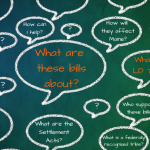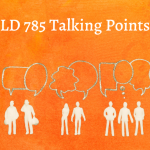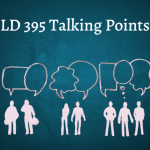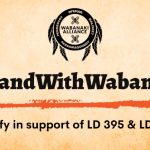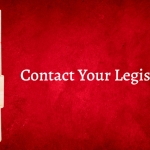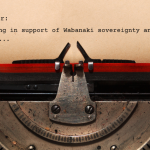The October Wabanaki Voices column was written by Maulian Bryant, former Penobscot Nation Tribal Ambassador and incoming Executive Director of the Wabanaki Alliance. Wabanaki voices is a monthly column in the Bangor Daily News opinion section that shares tribal perspectives. Read all Wabanaki Voices columns here.
Growing up at the Penobscot Nation we didn’t celebrate Columbus Day or acknowledge it in any way other than the quiet resilient protest of going about our work and school days. We did not see the value in celebrating events that are not only historically inaccurate but also harmful to the Indigenous people of the Caribbean and also the Wabanaki here. The genocidal tactics and mindset of Christopher Columbus and his crew set a standard for the colonization throughout our homelands and the violence and trauma have reached into all eras of our collective history.
A grassroots movement began to reclaim the day and promote truth and restoration within this holiday. By changing the second Monday in October to Indigenous Peoples’ Day we can honor the original peoples of these lands and waters instead of promoting the false notion that one explorer discovered this country. It has always been common sense to us that you cannot discover something that already exists. Our roots to this land go back over 10,000 years, long before 1492.
Towns and cities in Maine began to embrace this change due to the effective and heartfelt requests and communication from Indigenous people and allies. Before it was a state law there were at least 10 communities that made the switch at a local council level. This work and the momentum built a strong foundation for the work to come getting this change into state statute.
In 2019, Rep. Ben Collings from Portland sponsored the bill that would later become law that made this change official for the whole state. This was a great step forward for our state that we share. It is never about erasing or changing history. It is about shining a light on accuracy and making a decision together about what we want to honor and validate as a holiday. Those things are very empowering. And they build community across many differences and divides.
I knew it would be a good change to make for tribal-state relations and for advancing other tribal issues. I have always believed that if you do not see other humans as humans you will not treat them equally. By embracing a holiday (or sports team mascot) that detracts from the humanity of the targeted group, you immediately see them as less than. Oftentimes this is not intentional. The invisibility of marginalized people is systemic and easily perpetuated because of the nature of how we maintained the inequity over time and generations. Truth seeking and speaking is a remedy and it benefits all.
Something I didn’t realize when we were making this policy and speaking to the need for this change to Indigenous Peoples’ Day was the effect on tribal citizens. Over these five years I have heard from many Wabanaki thankful for this change and excited to celebrate this day instead of feeling conflicted or hurt by it. Our people have endured so much, and it is a blessing to have been able to bring about a reason to be joyful and proud in our continued presence and rich history and contributions. When I was growing up there was pain and confusion around why anyone would celebrate Columbus. Now my children are 2, 15, and 17 and in their homelands now called Maine they get to embrace this day each year and feel the strength and wisdom of our ancestors who smile as we make progress one issue at a time and honor their sacrifices.
We remain very thankful for all the support around this issue over the years. I have seen Mainers who admit they don’t understand or even like the change, but still see the value in it and accept our request because they understand humanity. We don’t see the full journey another person has taken or felt what they have felt or seen what they have seen. But we have the ability to transcend that ignorance by leaning into our own experiences and growing together. That is what healing can look like and that is what we started five years ago.


